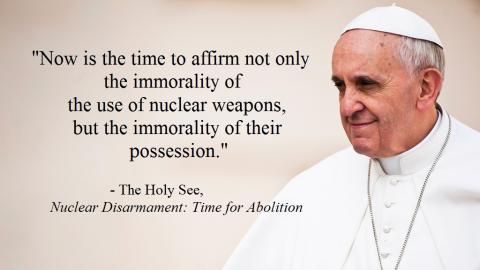
On February 1, U.S. Secretary of State Mike Pompeo announced that the United States is suspending the Intermediate-Range Nuclear Forces (INF) Treaty, starting a six-month countdown meant to allow for negotiations to resolve the problem – in this case, a long-running dispute over Russian compliance with the treaty. It appears the United States’ suspension of the treaty is seen by the Russians as a fait accompli as Russian Deputy Foreign Minister Sergei Ryabkov said, “There is no doubt the Americans will quit the treaty in the end.” Moscow responded in kind, suspending its obligations to the treaty only one day later.
Signed in 1987 by U.S. President Ronald Reagan and Soviet leader Mikhail S. Gorbachev, the INF Treaty eliminated over 2,600 nuclear weapons, an entire class of intermediate-range missiles, and helped bring about an end to the Cold War.
As Daryl Kimball with the Arms Control Association writes, “Without the treaty, there is serious risk of a new intermediate-range ground-based missile arms race in Europe and beyond.”
The end of the INF Treaty is a global security problem.
This drastic step by the United States signals the skeptical attitude toward arms control and international treaties in the Trump administration under the influence of National Security Advisor John Bolton. Some experts suspect that the Trump administration intends not to negotiate with Russia for an extension of the nuclear arms reduction treaty known as New START (Strategic Arms Reduction Treaty), which was signed in 2010 by Presidents Barack Obama and Dmitry Medvedev and expires in 2021.
Take Action
Click HERE to urge President Trump to negotiate with Russia on the INF Treaty and New START and ask your Senators to support S.312 to stop the production of new weapons that the INF Treaty prohibits.
